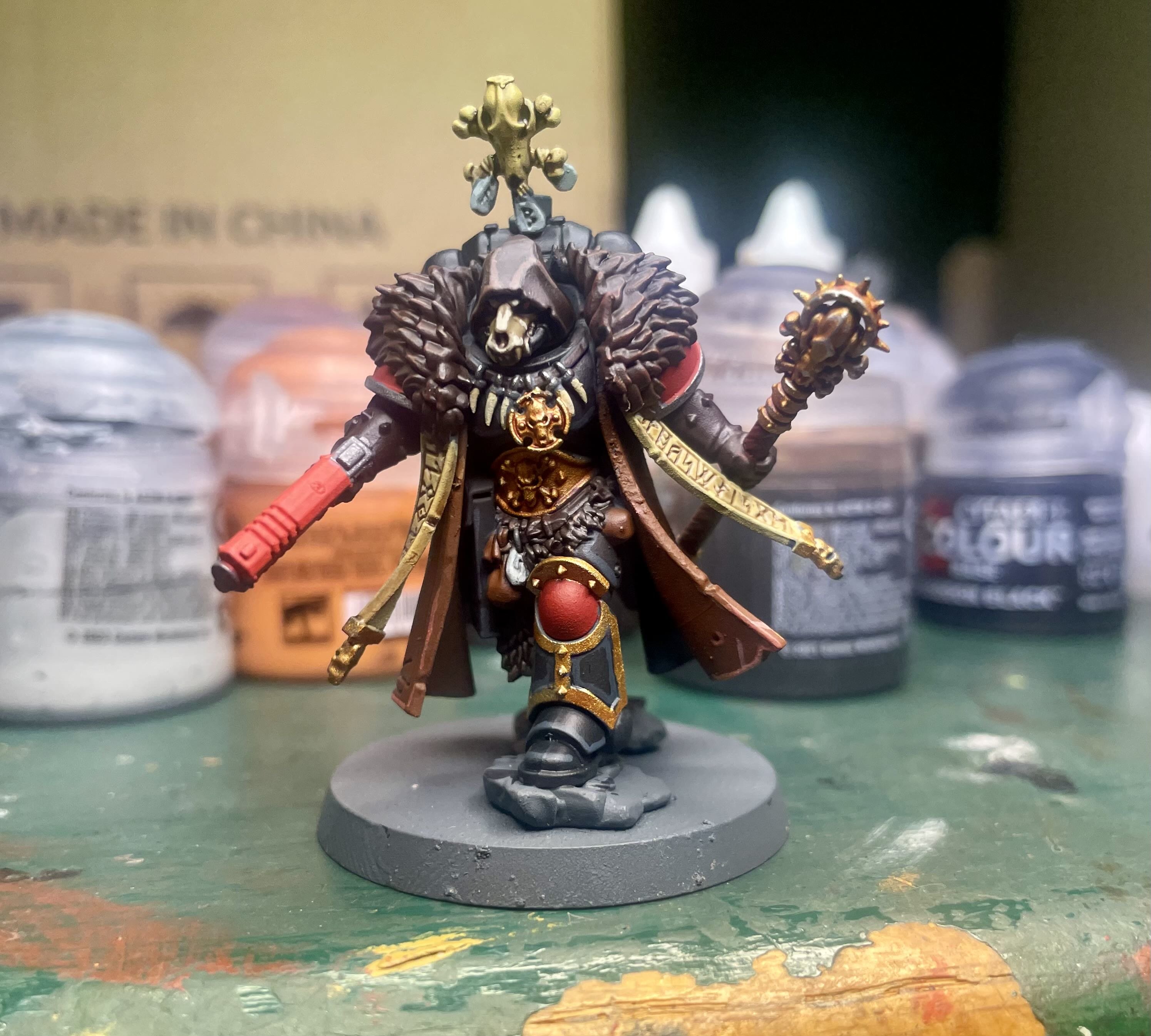"What In The Underverse is A Wulfen?" (A Survey) - Introduction and Part 1 of 5
The Wulfen Curse is perhaps one of the most controversial and perhaps, little-understood elements of paratext for the Space Wolves range of miniatures and models. [1] These are, broadly, feral wolf-transhuman hybrids who fight in a berserk fashion. However, their development and change as a literary concept is less discussed in discourses of their validity or lack thereof amongst the broader context of the Space Wolves and the 40k lore as a whole. This 'paper' seeks to examine, therefore, what exactly a Wulfen is — if such a thing can be pinned down at all.
A Note on Methodology
My research consists primarily of ‘primary sources’ — paratexts and literary works produced by Games Workshop themselves. Passages from these texts will be quoted at length to aid the discussion. However, these will also be supplemented by relevant scholarship in the areas of folklore, myth, and legend.
Type 1: Wulfen as Legend
The first and most dominant type of Wulfen in the paratextual typology is the legendary sort. It defines the other types, as it is constructed from pre-existing, real-world types and is arguably the first appearance thereof. Folklore of any type is extremely important to understanding any culture, be it real or constructed.
Etymology, as we will see, is useful for our purposes. Folk is defined by the Britannica dictionary as ‘relating to the common people of a country or region’. [2] Lore, on the other hand, is typically ‘traditional knowledge, beliefs and stories that relate to a particular place, subject, or group’. [3] In this case, Fenris serves as a useful fictional short-hand for ‘Norse’ folk and places, with its own accompanying human-constructed lore.
Therefore, one of the first major examples of the Wulfen in Games Workshop fiction is as pure folklore, told to the aspirants of the Space Wolves Chapter. A Wolf Priest, one of the Chapter’s shamans/morale officers/medics relates the tale as follows:
Or you may become a wulfen [sic]. Why is this, you are wondering? It is because the mark of Russ unleashes the spirit of the beast that is within us all. Some men are strong enough to control the beast. Others let the beast control them. When they do, a wulfen is born. (King, William. Space Wolf. Nottingham: Black Library)
He then goes on to relate the origin of the name. According to this Wolf Priest, whosoever drinks from the eponymous Cup of Wulfen (used in Space Wolves initiation rituals) will ‘take upon themselves the mark of Russ’. But if ‘they are unworthy’, they pay a ‘terrible price”. They pay as a jarl named Wulfen did, a “mighty man, fell and strong” and most importantly — evil. The Wulfen of this type are despised, not heralded or praised. They are arrogant, they are bloody-minded, and they are, worst of all to the Space Wolves, weak.
This bit of folklore portrays the Wulfen curse, such as it is, as something inborn, something weak ‘within us all’. However, only some of ‘us’ succumb to this ‘beast within’. A layman could draw clear parallels with the mythology around the famous berserkers of Norse civilization, those legendary savage warriors who ‘contributed to the development of the werewolf legend in Europe.' [4] Much has been made in many directions about the berserks, and not all of it is relevant to this survey. However, one can note the association between the inborn savagery of humans being related to the characters of the story and that of animals. Indeed, one of the many signatures of the berserkers was wearing a wolf’s head or bearskin hats. This first type, then, is the Wulfen as legendary symbol — a cautionary tale.
Footnotes
1. Material that surrounds a published main text. Genette, Gérard. Paratexts: Thresholds of Interpretation.
2. Encyclopedia Britannica, Inc. “Folk” in The Britannica Dictionary, 2024.
3. Encyclopedia Britannica, Inc. “Lore” in The Britannica Dictionary, 2024.
4. The Editors of Encyclopedia Britannica, “Berserker” in Encyclopedia Britannica, at https://www.britannica.com/topic/berserker



0 Comments
Recommended Comments
There are no comments to display.
Create an account or sign in to comment
You need to be a member in order to leave a comment
Create an account
Sign up for a new account in our community. It's easy!
Register a new accountSign in
Already have an account? Sign in here.
Sign In Now